1. This
2. This
3. Books
3.1. Critical Thinking and Argumentation
3.1.1. A Pragmatic Theory of Fallacy by Douglas Walton
3.1.1.1. Walton looks at how an argument is used in the context of conversation. He defines a fallacy as a conversational move, or sequence of moves, that is supposed to be an argument that contributes to the purpose of the conversation but in reality interferes with it. The view is a pragmatic one, based on the assumption that when people argue, they do so in a context of dialogue, a conventionalized normative framework that is goal-directed.
3.1.2. Perspectives on Scientific Argumentation: Theory, Practice and Research by Myint Swe Khine
3.1.2.1. Argumentation—arriving at conclusions on a topic through a process of logical reasoning that includes debate and persuasion— has in recent years emerged as a central topic of discussion among science educators and researchers. There is now a firm and general belief that fostering argumentation in learning activities can develop students’ critical thinking and reasoning skills, and that dialogic and collaborative inquiries are key precursors to an engagement in scientific argumentation. It is also reckoned that argumentation helps students assimilate knowledge and generate complex meaning. The consensus among educators is that involving students in scientific argumentation must play a critical role in the education process itself.
3.1.3. The New Rhetoric
3.1.4. Critical Thinking [Paperback] Richard L. Epstein
3.2. Decision Making and Rationality
3.2.1. An Introduction to Decision Theory (Cambridge Introductions to Philosophy)
3.2.2. An Introduction to Bayesian Inference and Decision
3.2.3. Causality: Models, Reasoning and Inference
3.2.4. Choices, Values, and Frames [Paperback]
3.2.5. The Psychology of Judgment and Decision Making
3.2.6. Rational Choice in an Uncertain World: The Psychology of Judgment and Decision Making
3.2.7. Heuristics and Biases: The Psychology of Intuitive Judgment
3.3. Social Psychology, Leadership, Power
3.3.1. Reading the Room: Group Dynamics for Coaches and Leaders
3.3.2. The Social Psychology of Power
3.3.3. Behavioral Game Theory: Experiments in Strategic Interaction
3.4. Logic and Computation (math heavy)
3.4.1. Probability Theory: The Logic of Science
3.4.2. Information Theory, Inference and Learning Algorithms
3.4.3. Logic, Language and Computation (Applied Logic Series)
3.4.4. Artificial Intelligence: Foundations of Computational Agents
3.4.5. Learning From Data
3.4.6. Computational Complexity: A Modern Approach
3.4.7. Computational Logic and Human Thinking: How to be Artificially Intelligent
3.4.8. Computational Logic and Set Theory: Applying Formalized Logic to Analysis
3.4.9. Handbook of Mathematical Logic (Studies in Logic and the Foundations of Mathematics)
3.4.10. The Convergence of Scientific Knowledge: A view from the limit (Trends in Logic)
3.4.11. How to Prove It: A Structured Approach
3.5. Language and Linguistics
3.5.1. Thoughts and Utterances: The Pragmatics of Explicit Communication
3.5.2. Naming and Necessity
3.5.3. Everything that Linguists have Always Wanted to Know about Logic . . . But Were Ashamed to Ask
3.6. Philosophy
3.6.1. Philosophy of Logics
3.6.2. Philosophy of Language (Princeton Foundations of Contemporary Philosophy)
3.6.3. Philosophy of Science: The Central Issues
3.6.4. The Philosopher's Toolkit: A Compendium of Philosophical Concepts and Methods
3.6.5. A Theory of Justice: Original Edition
3.7. Knowledge and Learning
3.7.1. Evidence and Inquiry: A Pragmatist Reconstruction of Epistemology
3.7.2. Tacit and Explicit Knowledge
3.7.3. Introduction to the Theories of Learning
3.7.4. Epistemology [Paperback]Richard Feldman
